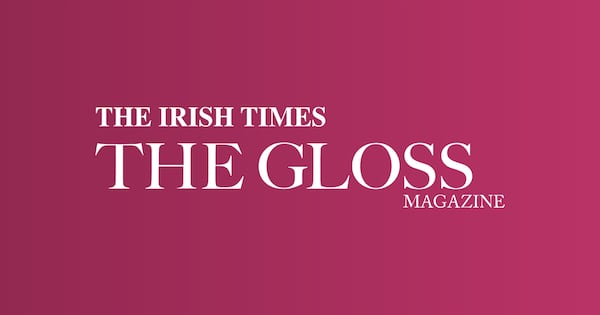In 2006, Susan Faludi returned to the seminal feminist book that made her name, Backlash, and wrote a new prologue for the 15th anniversary: “In the years since feminism’s revival in the early 1970s, American women have sped across so much ground that we can scarcely recognise the lives our grandmothers lived ... Yet as women near the finish line, we are distracted.
“We have stopped to gather glittery trinkets from an apparent admirer. The admirer is the market place, and the trinkets are the bounty of a commercial culture, which has deployed the language of liberation as a new and powerful tool of subjugation.”
Which brings us to the Chanel ready-to-wear show in Paris this week, which, depending on your perspective, celebrated or co-opted feminism.

“Feminist But Feminine!” “Boys Should Get Pregnant Too!” “We Can Match the Machos!” screamed the placards held aloft by the cheering models. Just typing those slogans makes me laugh, like reading fridge poetry after the toddler’s been at it: “Boys Are Bad!” “Yay Girls!”
Chanel is generally too big to bother with silly little things like trends. But the clothes in the show this week echoed the placards’ unashamedly superficial take on feminism, with many of the models wearing baggy trouser suits and oversized, Gloria Steinem-like spectacles. Because that’s how feminists look, you know. They look like the 1970s.
“Political correctness killed everything!”
Karl Lagerfeld, the creative director of Chanel, is, he suddenly claims, a feminist. He is also a self-publicist par excellence. The fashion industry is built on image-making and attention-seeking and no one - no one - in the whole business does it better than Lagerfeld, a man who affects enormous, lofty erudition and yet spends his time making Barbie dolls in his image. And I’m not using the term Barbie dolls as a disparaging description of models - I mean actual Barbie dolls.
Anyway, Lagerfeld’s explanation for his sudden burst of feminism - an unexpected one, to be sure, from a man who once said that Pippa Middleton’s face displeased him, and she “should only show her back” - was as adorably meaningless as his ridiculous placards.
“I don’t see why every human being is not on the same level, especially in my business,” he mused after the show, before then thinking fondly, and with an apparent total lack of irony, on the good old days: “Today, everything is forbidden. Political correctness killed everything!” Talking beaucoup de baloney est tres chic, n’est-ce pas?
No one has ever turned to Paris fashion week in search of a clear feminist message. I covered the shows for this paper for eight years, and while it is extremely easy to defend fashion itself on a feminist level, the fashion industry, and in particular the fashion weeks, are about as feminist as a fruitcake. The only message that can be gleaned from Chanel’s silly show is that feminism is currently trendy - and this is something that plenty of feminists don’t like.
Before we get into all that, let’s take a moment to marvel at just how quickly we have got here. In under a decade, feminism has gone from something that was barely discussed in the mainstream to being clickbait for news media sites and an easy way for celebrity culture to make itself look relevant.
Feminism is now - to the astonishment of anyone who loyally stuck with it when it was parodied as something for humourless sorts in boiler suits - fashionable. And so, of course, it has been commercialised.
High street outlets and online crafting websites sell feminist jewellery so you can express your feminist credentials and simultaneously show off your accessorising skills. Win win!
Where once celebrities shied away from describing themselves as feminists, now they clamour to claim the label, saying that simply existing in the public eye is a feminist act: “[I’VE REALISED] that I’ve been taking a feminist stance without actually saying so,” the formerly feminism-phobic Taylor Swift told the Guardian last summer.
“Tokenistic” feminism
When the history of fourth-wave feminism is eventually written up, one of the defining images will be of Beyonce standing in front of a glowing sign proclaiming “FEMINIST” at the MTV Video Music Awards.
Another will be of the Chanel show, with its messages of inclusivity and empowerment coming from an industry with a hilariously limited idea of how a woman should be.
Some feminist commentators have objected to all this, and I understand why. If feminism is fashionable now, they say, that just means it will be unfashionable later, right? Yes, it does - and that’s just fine with me, if it means we can all stop discussing the merits of Karl Lagerfeld’s feminist credentials.
But this kind of “tokenistic” feminism is harmful, others, such as Annie Lennox, cry. Personally, I don’t see much to be gained any more from adjudicating over who is or isn’t allowed to call themselves a feminist. If Taylor Swift suddenly likes the term, she can be my guest. This kind of flimflammery does no more damage to feminism than bootleg versions of the Barack Obama Hope poster did to the American presidency. There are so many bigger threats to gender equality around the world - government policies, restricted reproductive rights, FGM - than showboating from a fashion show.
Remember Faludi’s warning: these are mere “glittery trinkets”. The stuff of substance will endure.
Guardian News & Media 2014 guardian.co.uk










